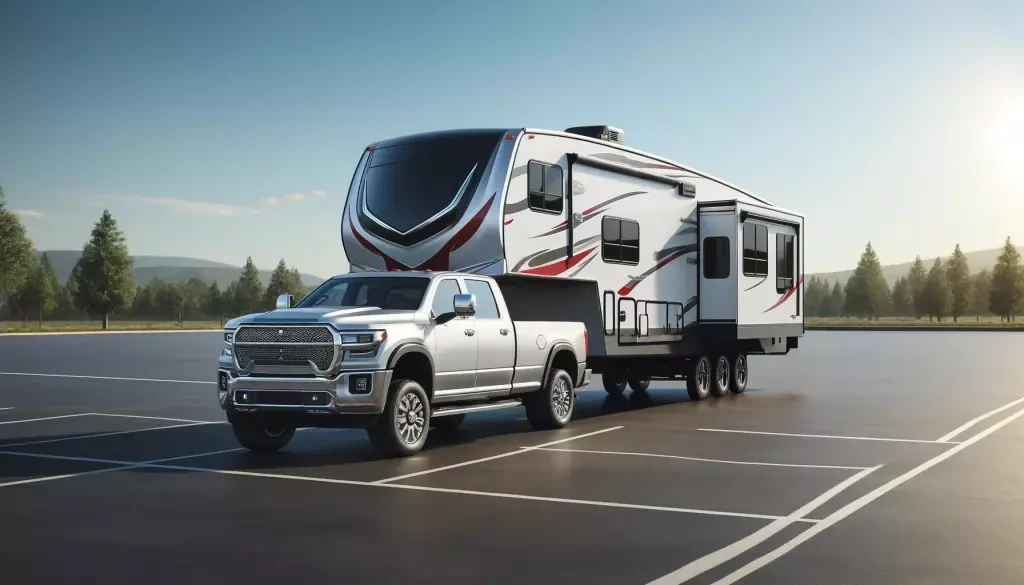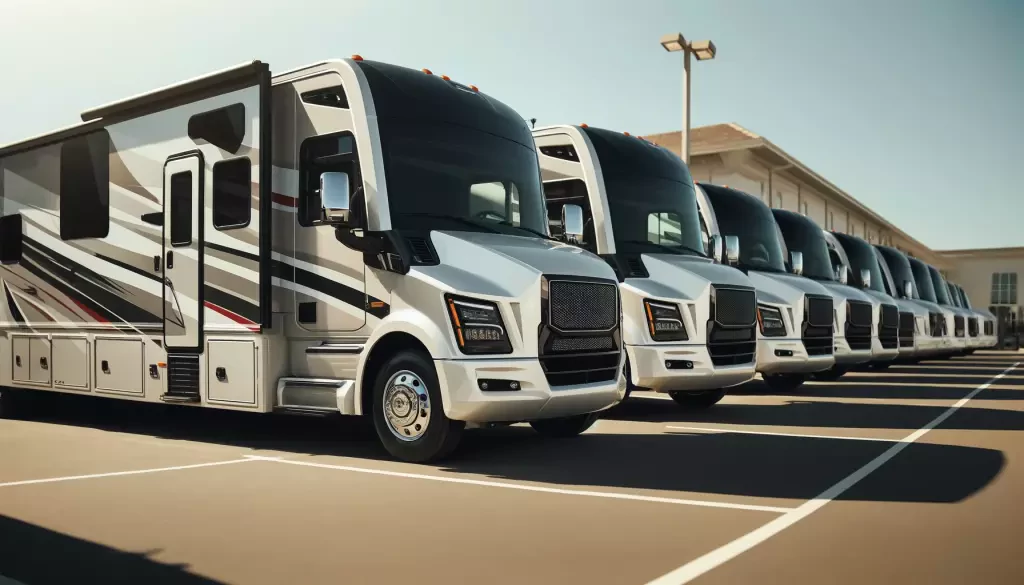
When questioning whether a special license required for RV transport, the answer largely depends on the vehicle's gross vehicle weight rating (GVWR), its classification, and the region in which it is operated. Most states in the U.S. allow a regular driver's license to suffice for driving most recreational vehicles. However, a commercial driver's license (CDL) becomes necessary under specific circumstances, particularly if the RV exceeds certain weight thresholds—typically over 26,001 pounds for the combined weight of the towed vehicle and the RV, known as the gross combined weight rating (GCWR). If the RV is used for commercial purposes, regardless of weight, a CDL may also be mandatory.
Understanding RV Classes and Licensing Implications
RVs are categorized into several classes: Class A, B, and C motorhomes, and travel trailers, each with unique licensing implications based on their gross vehicle weight rating (GVWR) and towed vehicle specifications. For example:
Class A RVs are often the largest, resembling bus-like vehicles and usually require at least an A or B license when exceeding certain weight limits.
Class B RVs, or camper vans, generally require only a valid driver's license as they are smaller.
Class C RVs, which are mid-sized and built on a truck chassis, might need a higher class of license in specific weight categories.
Understanding these classifications helps in determining whether a special driver's license is needed for lawful operation.
State-Specific Licensing Rules
The requirement for a special driver's license or endorsements can vary significantly from one state to another. In states like California, any recreational vehicle over 40 feet in length requires an A or B license, while a standard valid driver's license is adequate in many other states for most RV types. Certain states also demand additional endorsements for RVs that carry more than a specified number of passengers or meet specific gross combined weight rating (GCWR) thresholds. It's essential to review local DMV guidelines or consult with RV legal experts in the state where you plan to drive your campervan to ensure compliance with all licensing requirements.

International Hauling Licensing
Shifting across international borders demands thorough preparation regarding driver's license and customs requirements. Traveling between the U.S. and neighboring countries like Canada or Mexico often means meeting different licensing regulations. In Canada, a special license to drive an RV over 26,000 pounds may be required depending on the province, as each has distinct rules for RV driver's licenses. In Mexico, ensure that your non-commercial driver's license is recognized, or that you hold the appropriate commercial license if relocating for business purposes.
Documentation is crucial when crossing borders with an RV. Keep your special license documents handy, ensure your vehicle registration is updated, and have comprehensive insurance coverage that includes international travel. Customs requirements can involve declarations regarding multiple vehicles, personal effects, and proof of ownership. Confirm the specific requirements for each country before embarking on your journey, as non-compliance can result in fines or delays.
CDL Exemptions for Personal Use
A commercial license or special license to drive is usually unnecessary for personal, recreational RV use. Many states provide CDL exemptions for RVs used for leisure, allowing a non-commercial driver's license to suffice, even for motorhomes exceeding 26,000 pounds. However, this exemption is specific to private use and not applicable if the campervan is used to haul passengers for hire or deliver commercial goods.
Scenarios where a CDL can be circumvented include family vacations, seasonal travel, or part-time living in an RV. States often recognize these situations as non-commercial, allowing operators to retain their non-commercial class license. Despite this exemption, it's important to understand each state's regulations and ensure your rv driver's license remains valid within the weight and usage limitations.

Special Endorsements or Permits
Certain scenarios require additional certifications in the form of endorsements or permits, even if you don't need a special license. For example, a towing endorsement may be necessary when hauling a travel trailer or fifth wheel if your state mandates it for multiple vehicles configurations. If your RV has an air brake system, an air brake permit may be required. Additionally, some states may require specific special license endorsements if the RV is above certain weight limits.
To obtain these endorsements, drivers usually need to pass additional written or practical tests demonstrating their competency. Check your state's Department of Motor Vehicles guidelines for RV-specific requirements. Online study materials, driving schools, or RV clubs can help you prepare for these exams to ensure you're fully certified. A proper understanding of endorsements or permits will ensure a seamless, legal shifting experience, whether within the U.S. or internationally.
Professional Hauling Services
Licensed haulers offer peace of mind through their specialized expertise and rigorous compliance with state and federal rv licensing requirements. Using a licensed company ensures adherence to gross combination weight rating regulations and safety standards that private individuals might overlook. Professional transporters are experienced with vehicle towing and utilize suitable equipment for secure truck towing and efficient handling of large recreational vehicles.
These companies are required to have the appropriate commercial licenses and insurance credentials, providing protection for clients' vehicles during transport. Credentials like Class B CDL are essential for operating heavy motor vehicles and ensure that drivers can handle their weight and maneuverability. With appropriate shifting certifications, reputable shifting services can navigate legal complexities, border crossings, and challenging road conditions more effectively than individual drivers.
Safety and Legal Considerations
Adhering to campervan licensing requirements is crucial for safety and legal compliance. Meeting weight-specific guidelines like the gross combination weight rating (GCWR) ensures proper handling of heavy towing vehicles. Drivers need suitable training and licensing, particularly when handling recreational vehicles with air brakes or vehicle towing more than the standard trailer.
Failure to comply with these legal standards can result in hefty fines, legal penalties, or even loss of a license. States take licensing infractions seriously because of the potential for accidents with motor vehicles exceeding specific weight limits. Non-compliance also impacts insurance claims, as many providers require appropriate licenses for coverage. Properly trained and licensed drivers reduce risks to themselves and others on the road.

Preparation Tips for Hauling
Before shifting, thorough preparation is essential. Secure a commercial license or other relevant permits according to rv licensing requirements. Gather essential documents like a Class B CDL or other driver's licenses, insurance papers, and up-to-date vehicle registration. Ensure that towing vehicles have adequate insurance and towing capacity.
Create a comprehensive checklist for maintenance and inspection. Confirm the RV’s gross combination weight rating aligns with the truck towing capacity. Check the hitch, tire pressure, brake functionality, lights, and mirrors. Secure loose items inside to prevent damage during transport. Consider the fuel, fluid levels, and emergency tools. Having everything organized ensures a smoother, hassle-free journey.
Conclusion
Navigating shifting licensing requirements is crucial for legal and safe travel. Understanding when commercial licenses or endorsements are required can prevent legal issues. Complying with gross combination weight rating regulations, securing proper vehicle towing equipment, and meeting state-specific standards help avoid penalties. By adhering to these guidelines, drivers can enjoy the journey and focus on the destination while avoiding unforeseen roadblocks that may arise due to improper documentation or preparation.






 Share on Facebook
Share on Facebook Share on LinkedIn
Share on LinkedIn Share on Twitter
Share on Twitter




 Google
Google  Instagram
Instagram  Trustpilot
Trustpilot 



